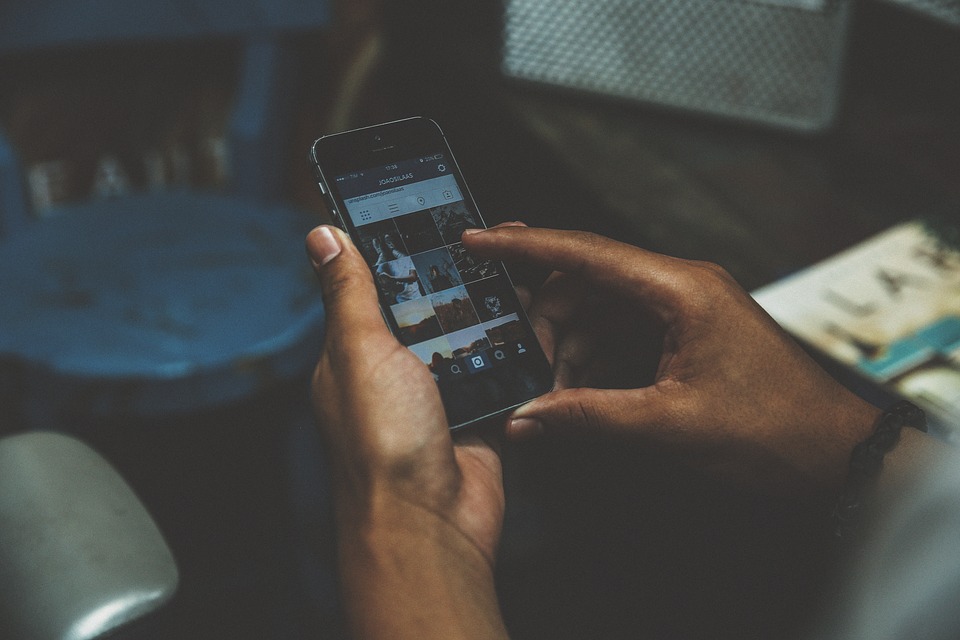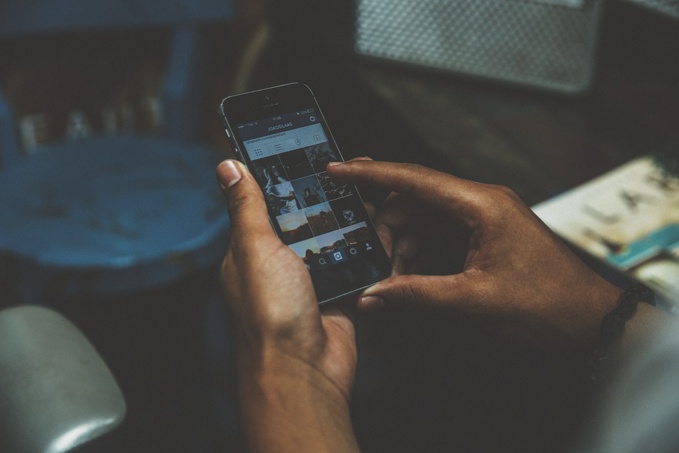According to analyst firm Strategy Analytics, the company sold 334.6 million smartphones in January-March 2016. This is 3% less than in the same period last year. Year-to-year, the smartphone market fell for the first time since 1996, when the Strategy Analytics started to count sales of advanced mobile communications.
Largely, the fall is linked to the beginning of saturation of the largest smartphone market in the world – Chinese. Above that, there are increased consumer concerns about the state of the global economy.
Almost all the major players recorded the fall in sales, yet each of them explained it differently. The smartphone manufacturers’ leader, Samsung Corporation of South Korea, sold 81.9 million units in the first quarter of this year - 1.7% less than in the same period last year. At the same time, its share on the global market is still the same: the decline was only 0.1%, to 24.6%. Last week, Samsung unveiled the quarterly data: in January-March this year, the company reported an increase in revenues by 5.7%, up to 49.78 trillion won (about $ 43.5 billion).
The American giant – Apple – reported a little earlier. For the first time in 13 years, the company displayed a drop in quarterly sales. Apple's revenue for the first quarter of the fiscal year (second quarter on the American system) fell by 12.8% to $ 50.6 billion. The iPhone’s share dropped from 18.3 to 15.3% in the global market. Though Apple’s operating profit from the sale of mobile devices is three bigger than that of Samsung ($ 13,9 billion against $ 3.38 billion), the numerical drop in sales occurred to be far bigger than the Korean competitor’s. In January-March 2016, 51.2 million iPhone units against 61.2 million a year earlier have been sold all over the world. After the publication of the quarterly reports on last Wednesday, Apple’s shares in the first half hour of trading on April 27 fell by 7%. Billionaire Carl Icahn, Apple’s investor, got rid of his stake in the company. Previously, he used to say that the technology giant’s shares are undervalued.
Out of the top three leaders, only Chinese Huawei has produced great results, having increased its share of the smartphone market from 5.3 to 8.3% over the past year. The company also increased the volume of sales by 64% - from 17.4 to 27.5 million units, according to IDC Worldwide Quarterly Mobile Phone Tracker.
Analysts attributed Samsung’s relatively good key figures to the group's new products - smartphones Galaxy S7 and Galaxy S7 Edge, released in February. According to SamMobile China, these models received more than 10 million pre-orders since 11 March in China. According to IDC, Galaxy S7 and S7 Edge were actively sold in March thanks to support of communications providers.
Apple recorded a drop in sales on nearly all markets (except Japan, where revenues rose by a quarter, to $ 4.3 billion) and in all major products: iPhone, iPad and Mac. The Chinese market showed the biggest fall in all respects.
In its reporting, Apple sets aside the Greater China region, which includes China, Hong Kong and Taiwan. Quarterly sales on this market fell down to 26%, to $ 12.5 billion. For the last two quarters, they decreased by 6%, to $ 30.9 billion. Share of the Chinese market in Apple’s revenue decreased from 29% to 25%, nearly giving the second place in Europe.
Apple explains that the fall by the situation of Asian sales in Hong Kong. The local dollar is pegged to the US dollar. The American currency’s strengthening had a negative impact on the development of tourism and retail trade in Hong Kong. The following figures give more evidence: the fall in revenue in Greater China was 26%, but separately, there were only 11% in China itself (excluding Hong Kong and Taiwan). only.
The day before Apple disclosed the reporting, Jia Yueting, a Chinese billionaire and founder of LeEco concern, gave his first interview to the Western media. As a high-tech specialist (his company is engaged in the production of electric vehicles, smart phones and online services development), the businessman called Apple an ‘obsolete’ firm.
"Only the super-rich people, highly paid professionals can afford iPhone in China. This is a relatively small percentage - emphasizes John Zhang, professor at Penn Wharton China Center. - This means that at some point, you will not be able to sustain growth without introducing major innovations to keep customers interested."
Apple's presence in China faces yet another obstacle - this time, legal. The Chinese authorities blocked iBooks Store and iTunes Movie in China. "Given China’s economic slowdown and Apple’s legal challenges on this market, the company will be difficult to achieve an acceptable growth here," - commented Analytical Center Juniper.
For smartphone market, the slowing Chinese economy is the same constraint as for the primary industries. IDC identifies several trends in the Chinese mobile phone market. Firstly, this is the slowed growth. The increase in the volume of deliveries to the previous year was 62.5% in 2013. In 2014, this figure fell to 20%, and amounted to only 2.5% in 2015. Secondly, the Chinese consumers are becoming more discerning. "As the Chinese market matures, the appetite for smartphones is dramatically reduced. The explosive interest in them has passed its peak," - said the consulting agency.
The average price of a smartphone has increased from $ 207 in 2013 to $ 257 in 2015. Meanwhile, the Chinese consumers are increasingly eyeing the national producers, such as Huawei, and two little-known brands in the global market, OPPO and Vivo. These have already entered into the top-five sales leaders, displacing two other Chinese companies, Xiaomi and Lenovo. Both brands belong to BBK Electronics of Guangdong Province.
In January-March 2015, 7.3 million OPPO smartphones were sold in the world (mostly in China and India). This year, there are already 18.5 million (2.2 and 5.5% of the global share, respectively). OPPO is followed by Vivo (6.4 million units last year and 14.3 million in the first quarter of this year).
source: ft.com, bloomberg.com
Largely, the fall is linked to the beginning of saturation of the largest smartphone market in the world – Chinese. Above that, there are increased consumer concerns about the state of the global economy.
Almost all the major players recorded the fall in sales, yet each of them explained it differently. The smartphone manufacturers’ leader, Samsung Corporation of South Korea, sold 81.9 million units in the first quarter of this year - 1.7% less than in the same period last year. At the same time, its share on the global market is still the same: the decline was only 0.1%, to 24.6%. Last week, Samsung unveiled the quarterly data: in January-March this year, the company reported an increase in revenues by 5.7%, up to 49.78 trillion won (about $ 43.5 billion).
The American giant – Apple – reported a little earlier. For the first time in 13 years, the company displayed a drop in quarterly sales. Apple's revenue for the first quarter of the fiscal year (second quarter on the American system) fell by 12.8% to $ 50.6 billion. The iPhone’s share dropped from 18.3 to 15.3% in the global market. Though Apple’s operating profit from the sale of mobile devices is three bigger than that of Samsung ($ 13,9 billion against $ 3.38 billion), the numerical drop in sales occurred to be far bigger than the Korean competitor’s. In January-March 2016, 51.2 million iPhone units against 61.2 million a year earlier have been sold all over the world. After the publication of the quarterly reports on last Wednesday, Apple’s shares in the first half hour of trading on April 27 fell by 7%. Billionaire Carl Icahn, Apple’s investor, got rid of his stake in the company. Previously, he used to say that the technology giant’s shares are undervalued.
Out of the top three leaders, only Chinese Huawei has produced great results, having increased its share of the smartphone market from 5.3 to 8.3% over the past year. The company also increased the volume of sales by 64% - from 17.4 to 27.5 million units, according to IDC Worldwide Quarterly Mobile Phone Tracker.
Analysts attributed Samsung’s relatively good key figures to the group's new products - smartphones Galaxy S7 and Galaxy S7 Edge, released in February. According to SamMobile China, these models received more than 10 million pre-orders since 11 March in China. According to IDC, Galaxy S7 and S7 Edge were actively sold in March thanks to support of communications providers.
Apple recorded a drop in sales on nearly all markets (except Japan, where revenues rose by a quarter, to $ 4.3 billion) and in all major products: iPhone, iPad and Mac. The Chinese market showed the biggest fall in all respects.
In its reporting, Apple sets aside the Greater China region, which includes China, Hong Kong and Taiwan. Quarterly sales on this market fell down to 26%, to $ 12.5 billion. For the last two quarters, they decreased by 6%, to $ 30.9 billion. Share of the Chinese market in Apple’s revenue decreased from 29% to 25%, nearly giving the second place in Europe.
Apple explains that the fall by the situation of Asian sales in Hong Kong. The local dollar is pegged to the US dollar. The American currency’s strengthening had a negative impact on the development of tourism and retail trade in Hong Kong. The following figures give more evidence: the fall in revenue in Greater China was 26%, but separately, there were only 11% in China itself (excluding Hong Kong and Taiwan). only.
The day before Apple disclosed the reporting, Jia Yueting, a Chinese billionaire and founder of LeEco concern, gave his first interview to the Western media. As a high-tech specialist (his company is engaged in the production of electric vehicles, smart phones and online services development), the businessman called Apple an ‘obsolete’ firm.
"Only the super-rich people, highly paid professionals can afford iPhone in China. This is a relatively small percentage - emphasizes John Zhang, professor at Penn Wharton China Center. - This means that at some point, you will not be able to sustain growth without introducing major innovations to keep customers interested."
Apple's presence in China faces yet another obstacle - this time, legal. The Chinese authorities blocked iBooks Store and iTunes Movie in China. "Given China’s economic slowdown and Apple’s legal challenges on this market, the company will be difficult to achieve an acceptable growth here," - commented Analytical Center Juniper.
For smartphone market, the slowing Chinese economy is the same constraint as for the primary industries. IDC identifies several trends in the Chinese mobile phone market. Firstly, this is the slowed growth. The increase in the volume of deliveries to the previous year was 62.5% in 2013. In 2014, this figure fell to 20%, and amounted to only 2.5% in 2015. Secondly, the Chinese consumers are becoming more discerning. "As the Chinese market matures, the appetite for smartphones is dramatically reduced. The explosive interest in them has passed its peak," - said the consulting agency.
The average price of a smartphone has increased from $ 207 in 2013 to $ 257 in 2015. Meanwhile, the Chinese consumers are increasingly eyeing the national producers, such as Huawei, and two little-known brands in the global market, OPPO and Vivo. These have already entered into the top-five sales leaders, displacing two other Chinese companies, Xiaomi and Lenovo. Both brands belong to BBK Electronics of Guangdong Province.
In January-March 2015, 7.3 million OPPO smartphones were sold in the world (mostly in China and India). This year, there are already 18.5 million (2.2 and 5.5% of the global share, respectively). OPPO is followed by Vivo (6.4 million units last year and 14.3 million in the first quarter of this year).
source: ft.com, bloomberg.com



















